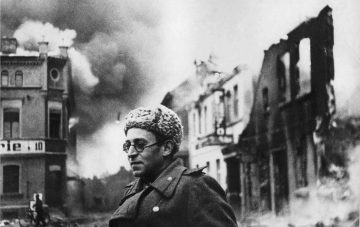 Sheila Fitzpatrick in The Nation:
Sheila Fitzpatrick in The Nation:
Vasily Grossman is hard to pigeonhole. A Jewish novelist and journalist and not a party member, he was one of the Soviet Union’s leading war correspondents during World War II, first at Stalingrad, then with the Soviet Army moving westward. He wrote powerfully about the destruction of the Jews of the Ukraine and Poland. His big postwar novels, For the Right Cause and Life and Fate, drew on his wartime experiences, and at one point it seemed he might be a plausible contender for the role of the Soviet Tolstoy. But the novels, especially Life and Fate, had too strong a Jewish theme for the Soviet authorities. They also suggested a basic similarity between the Soviet and Nazi political systems, so he often had trouble with the censors, though his work was never under a total ban. Life and Fate was confiscated by the KGB in 1961 before publication, but his other writings stayed in print, and he remained at liberty and died of cancer a few years later.
Grossman was never a favorite of Soviet dissidents, being too Soviet-minded for them and coming too early, and during his lifetime he had prickly relations with the main reform-minded Soviet journal of his day, Novyi Mir. While Western literary critics were often lukewarm about his work for stylistic reasons, Life and Fate nevertheless finally found a niche with Western readers who enjoyed its big, multicharacter war-and-Holocaust narrative and its clear moral line, relaxed narration, and vivid realistic settings culled from his journalistic days. No doubt those readers also approved of the implicit message that Soviet Communism and Nazism were much the same thing.
More here.
